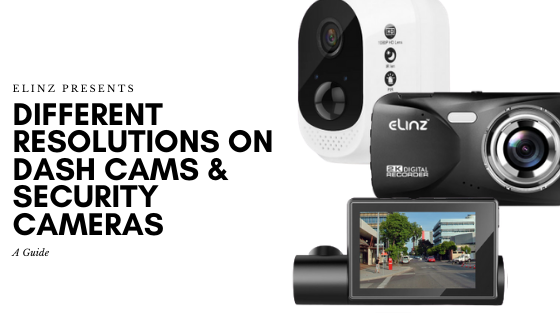
Today, we’ll be talking about image resolution and how it ultimately affects the picture clarity that you’ll be receiving on your dash cams and security cameras. We’ll also explore the most basic resolutions that you can see on various different dash cameras and security cameras, and how they’ll look like when they’ve been exported.
But first, we need to get the perspectives in place - in this case, the resolutions that you’ll mostly see in various different cameras.
Resolutions, resolutions
People often find resolutions tricky to remember. Here’s a quick and easy list that anyone can remember:
720P: This is where HD starts. That means that 720 horizontal individual pixels show on the video, and that’s enough to show passable high definition on any kind of display.
1080P: This is full HD. For those in the know with their laptops or personal computers, most device displays are in this range. Usually, 1920x1080p is the common resolution, and from there you’ll be able to see stunning images.
1440P: Now this is where it gets a bit confusing. 1440P is also known as 2K resolution. Now you might hear some people call it 1080P 1k, but that’s just confusing - let’s either stick to 1440P or 2K.
4K. You’ll hear this thrown around a lot, as it’s the “holy grail” of high definition video in today’s technology. Cameras, TVs, even some cell phone display boast of this resolution and for good reason - if you get used to 4K display, it’ll be hard downgrading to a much smaller one such as 1080 or 720 - the difference is extremely recognizable due to 4k’s lifelike video output that’s just incredibly hard to beat.
If you’d like some more context, you can try opening up any YouTube video that has 4k resolution, set it to full screen, and tweak around the video resolution - it should have all the aforementioned resolutions in there that you can see in our dashcams and security cameras, albeit with a few differences due to editing and video production.
You’ll even be able to see lower resolutions such as 360 & 480P, which will help you understand why you need an HD security camera or dash camera - these resolutions clearly aren’t enough and you need something better.
What do the resolutions look like from our cameras here at Elinz?
Here are some good examples from some of our friends at Bay 93.9 & Practical Motoring - both of which have just published reviews for our dashcams, action cameras, and security cameras, which you can read here: Bay 93.9 review of IP Elinz IP security camera | Practical Motoring 4k DCMAX Dash Cam review
Here is a sample of an image still from a 4K video feed from our DCMAX dash cam.
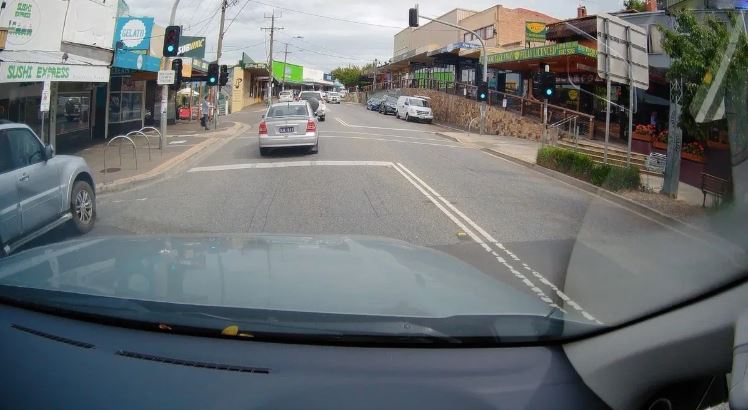
Here’s another image still of a video from the DCMAX dash cam, at a smaller 1080P resolution - not bad at all, wouldn’t you say?
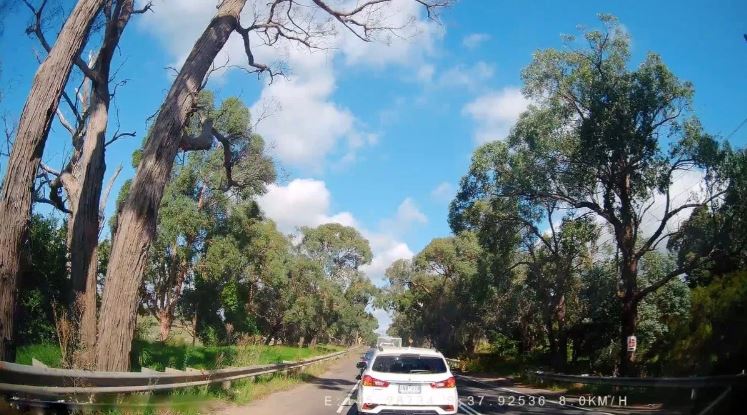
Images courtesy of Practical Motoring AU.
Now from our IPCAMBATTERY security camera, you’ll see this image still, set at 1080P.
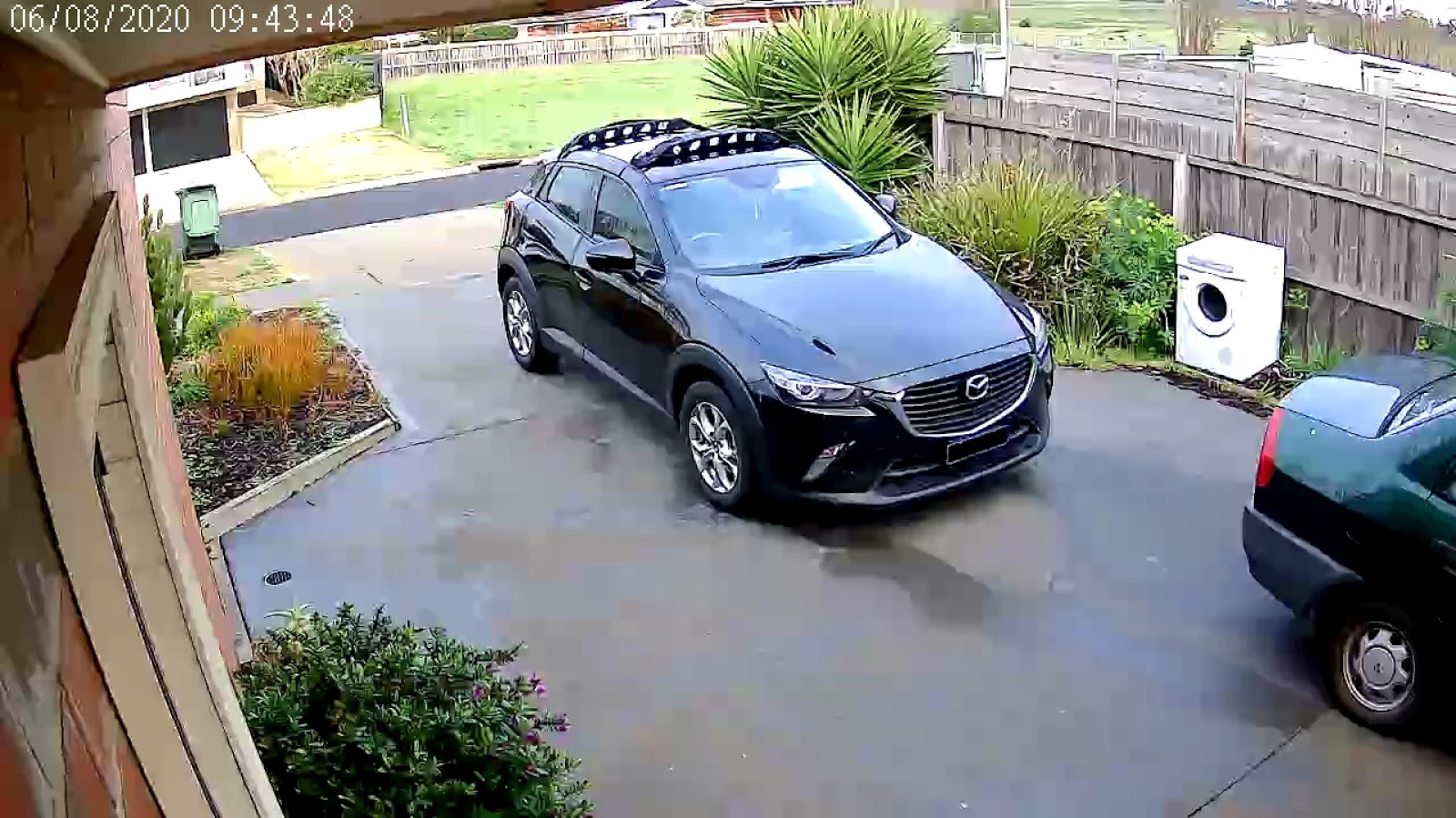
Since security cameras are used a lot at night, we’d like to show you the same resolution and quality in low lighting conditions, assisted by the security camera’s IR LEDs and image processing to show you this unedited image.
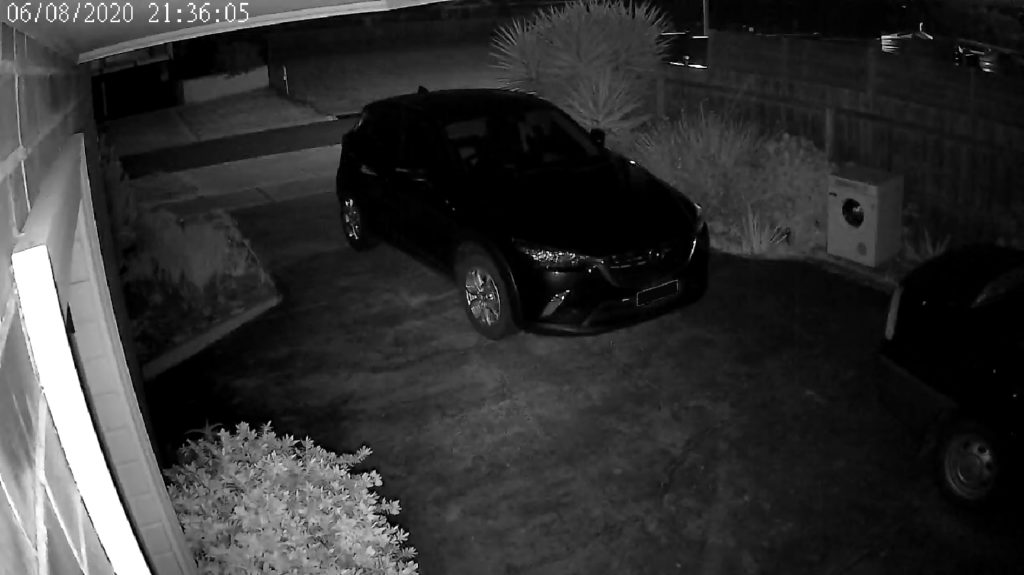
Image courtesy of Bay 93.9.
You’ll notice that 4k is a lot more detailed than most of the resolutions shown above.
So what do I pick? Is a bigger resolution always better?
Yes, and no. Yes, because you of course need to have a very viewable resolution, and that’s available at the higher resolution - either at 4k, 2k, or 1080P.
At the same time, you don’t need to be set on 4K all the time with your dashcam (or your security camera). For one, 4K is much more suited for entertainment purposes rather than surveillance or keeping an eye on your vehicle. If you were to record on your action camera, then having it set on 4K all the time is justified.
Another reason that you might want to tone it down is that 4K takes up a massive amount of space in your data storage. This is exactly why we’ve done away with 4k with our security cameras - it’s not practical and is basically overkill especially when it comes to surveillance.
Here’s some proper context - drive around in 4k for a few hours, and you’ll receive a notification that your 32GB SD card is all full and that it needs to offload. So if you’re planning on using your 4K dashcam for a trip, make sure to plan ahead so that you’re able to capture the sights you want to see with a 4K dashcam.
Generally, our main take on this is to stick either to 1080P; which provides plenty of image clarity both on the road and at home. If you like a bit more detail, use 1440P/2K, which is the middle ground between 4K and 1080P.
Speaking of 2k - we’ve got a couple of dash cams available within our lineup that support this resolution, and we have a newly released one - our HD 2K dual dash cam that is just perfect for everyday use, Compact, easy to install with an effective view range of 170 degrees, it’s the perfect companion for every motorist out there without breaking the bank. Get this dash cam here today.
If you’d like to augment your security camera solution or if you’ve got a trip lined up soon, be sure to check out our security camera and action camera listings here as well.
We hope this clears up things for you and makes resolutions a little bit easier to understand!





